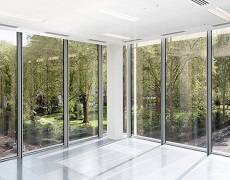October 3, 2014
Vital role of FM in success of an organisation illustrated in latest RICS case studies
 The utilisation of Building Information Modelling (BIM) to innovate FM within a business, and the way in which strategic FM can help boost the wellbeing of employees are two of the latest case studies launched by the Royal Institute of Chartered Surveyors (RICS) aimed at illustrating the vital role played by FM in the success of an organisation. The case studies, produced by International Workplace, and available to download here, outline how businesses, large and small, can utilise strategic FM to enhance their business’ output. Through organisations as varied as The Royal BAM Group and the Hong Kong Jockey Club, the theme of professionalising FM is brought to life and explained using tangible, real life examples. Speaking at the launch of the case studies, held at KPMG, featured for its living wage initiative, Neil Murray, Managing Director at Sodexo UK talked about the contribution FMs can make to an organisation by making it a better place to work. (more…)
The utilisation of Building Information Modelling (BIM) to innovate FM within a business, and the way in which strategic FM can help boost the wellbeing of employees are two of the latest case studies launched by the Royal Institute of Chartered Surveyors (RICS) aimed at illustrating the vital role played by FM in the success of an organisation. The case studies, produced by International Workplace, and available to download here, outline how businesses, large and small, can utilise strategic FM to enhance their business’ output. Through organisations as varied as The Royal BAM Group and the Hong Kong Jockey Club, the theme of professionalising FM is brought to life and explained using tangible, real life examples. Speaking at the launch of the case studies, held at KPMG, featured for its living wage initiative, Neil Murray, Managing Director at Sodexo UK talked about the contribution FMs can make to an organisation by making it a better place to work. (more…)

























October 6, 2014
We’ve long had ‘overwhelming evidence’ for the link between office design and productivity
by Mark Eltringham • Comment, Facilities management, Workplace, Workplace design
(more…)